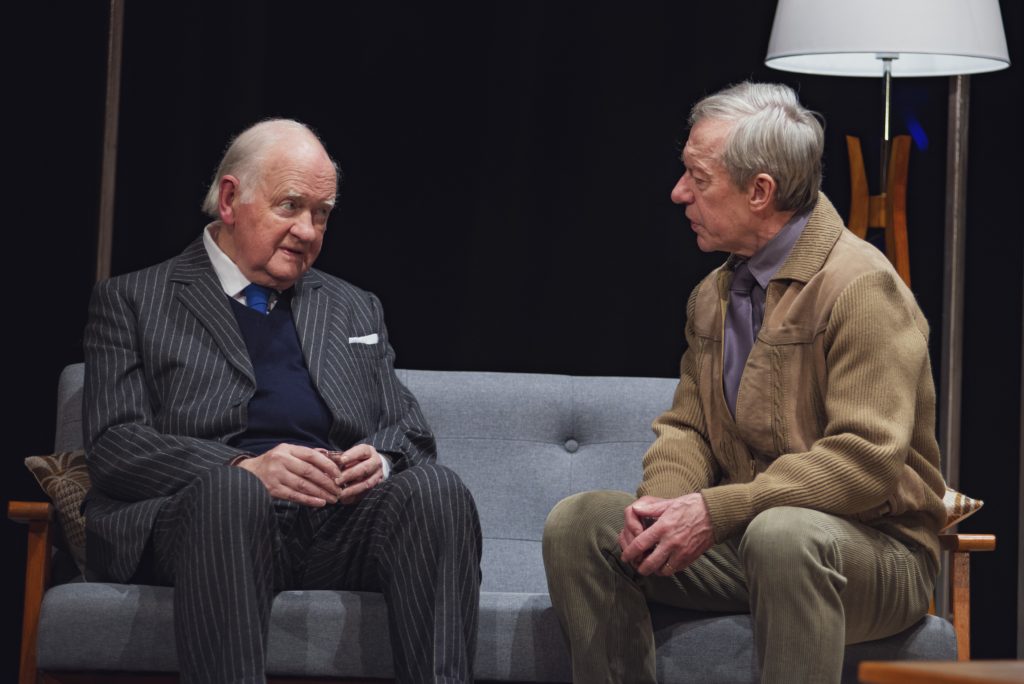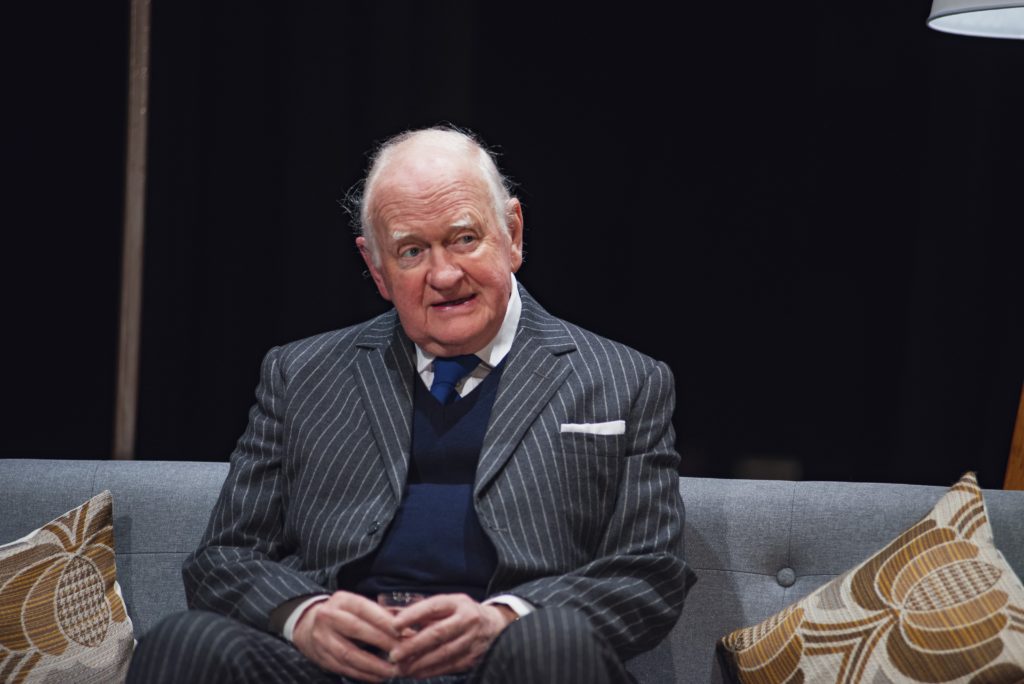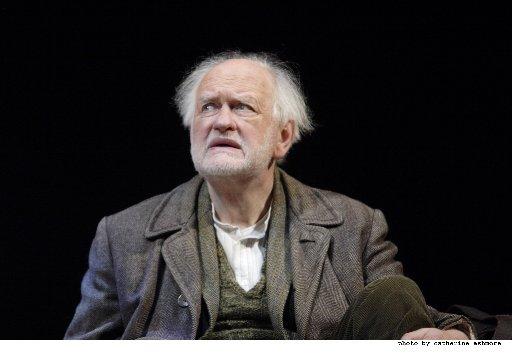
A Splinter Of Ice, The Original Theatre Company, York Theatre Royal, until Saturday. Box office: 01904 623568 or at yorktheatreroyal.co.uk
WHAT’S this? A proper printed programme to peruse. Another sign of a return to theatre’s old normal ahead of Monday’s Step 4 pronouncement and its promise of the resumption of full-capacity shows.
What’s this? A not particularly busy first-night audience for spy story A Splinter Of Ice, even making allowances for social distancing in masked times. We could romanticise how theatres will be crammed to the gills once “Freedom Day” arises, but audiences are selective. Always were, always will be.
In between the mothballed lulls in lockdown, we have grown accustomed to seeing theatres and theatre companies adapting to Covid rules with social-bubble casts of one, two or three on main stages. In truth, Ben Brown’s three-hander would have been equally at home on a studio or Edinburgh Fringe stage, where it would have gained from added claustrophobia.
A Splinter Of Ice has its own cases of social distancing and mask-wearing: Brown’s subject matter is the first meeting in 35 years of The Third Man writer Graham Greene (Oliver Ford Davies) and Cold War-era spy Kim Philby (Stephen Boxer) in 35 years, whose friendship had been forged in Greene’s days in Philby’s office at MI6. Greene professed to loving him, maybe explaining the play’s inclusion in the Theatre Royal’s Love Season.
British intelligence officer and double agent Philby’s defection to the Soviet Union ensured an enforced social distancing, despite Philby’s invitations to his old friend to visit him. Greene finally does so when attending a peace conference at Gorbachev’s initiation, along with the likes of Yoko Ono, Gregory Peck and Peter Ustinov.
The date is February 15 1987. Greene arrives for dinner at Philby’ rudimentary Moscow flat, home to the terminally ill spy, his charming fourth wife Rufa (Karen Ascoe) and books and a chair given to Philby by fellow Cambridge Five spy Guy Burgess.
Michael Pavelka’s set is skeletal, bare scaffolding framing the drab flat contents, much like Brown must fill in the blank pages of exactly what went on that night as Greene would later only affirm that the meeting had taken place.
Likewise, Boxer’s Philby opens by saying he will not answer any of Greene’s questions, although subsequently he does, but who knows where the truth lies in his answers. Greene had had the first word, addressing the audience directly to warn that “perhaps he was just playing with me, as he did with others”. Philby’s mask-wearing had been so adroit that he was, in Greene’s words, “the greatest spy of the 20th century”.

“Though they are great friends, they withhold things; they’re not always honest with each other,” Ford Davies forewarned in his interview, and indeed Greene is, in his own way, as a writer, an outsider, an observer, who has to keep his anti-social distance from his quarries. Are his reasons for finally agreeing to see Philby entirely honest, or is there a hidden agenda?
Just as Philby is still in the service of his Russian masters, albeit only sparingly, so Greene still attaches himself to “the firm” (MI6).
The British love a spy story, whether in book or film form, and here we have two of the brightest minds of their generation locking intellectual horns over wine, whisky and a dinner of coq au vin cooked by Rufa (although Philby normally does the cooking).
Tonight, however, he is on washing-up duty, a task that facilitates Brown the opportunity to have a conversation between Greene and Rufa, to bring a third, more sympathetic, perspective into the reunion, a device that also loosens up what might otherwise be all rather too stifling and monochrome.
Brown conducts the first half as Philby sketching in some of the blanks under Greene’s questioning, telling the story his convivial, urbane way, before all that politesse truly turns to politics post-dinner when Greene’s probing becomes more of an inquisition, as Philby starts to show his true colours in “vodka veritas” with what Greene calls his “chilling certainty” – and no sense of guilt. Greene turns out to be the more mysterious character, the ghost in the writer, there but not there.
There is a little brittle wit , there is intrigue, history and mystery too, and then there is the big question: would you choose to be loyal to your friend or your country? Yet A Splinter Of Ice ultimately leaves you as cold as the Cold War; for all the surface finesse of Alan Strachan’s direction and the consummate stage craft of Ford Davies, Boxer and Ascoe, it should reveal and say more, rather than play a chess game in words. From Brown, amid the display of superior grey matter, the play is too grey without enough of his own voice beyond the detailed research.
Truth be told, An Englishman Abroad, Alan Bennett’s marrow story of a defector and British visitor, Guy Burgess and actress Coral Browne, meeting in Moscow in 1958, was more fascinating, more rewarding too.
Given the subject of two men who took such risks, whether in word or deed, A Splinter Of Ice feels just too safe.
Review by Charles Hutchinson



